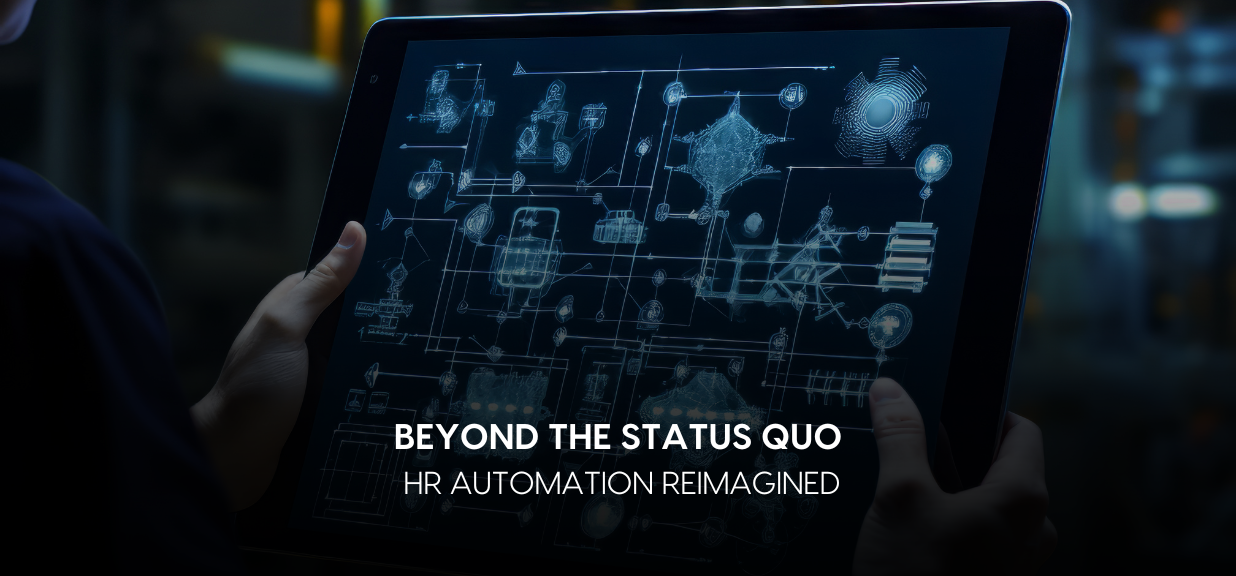Boosting HR Efficiency: The Benefits of Workflow Automation

Did you know that companies leveraging workflow automation in HR report a 30% increase in productivity and a 25% reduction in errors? In today's fast-paced business world, work efficiency is the most critical. Human Resources (HR) departments, which are frequently burdened by repetitive work and administrative processes, can considerably benefit from process automation. Imagine a world where repetitive tasks are handled seamlessly by technology; then, HR staff can focus on strategic initiatives that support organizational growth by automating regular operations using technology.
What is Workflow Automation?
Workflow automation is a method to automate business processes and workflows while doing minimum human intervention. The software creates a series of automated actions to perform steps in business processes in the workflow automation process.
The HR workflow requires a personal touch, and computers can't do everything. The following questions should be considered while determining which HR Process should be automated.
- Is it repetitive?
- Does it occur often?
- Does it involve a specific, repeated set of steps?
- Does it use large amounts of data?
- Does it require two or more software solutions to complete?
The Need for Workflow Automation in HR
HR professionals know how time-consuming and tedious their job can be. The whole purpose of having an HR department within a company is to maximize employee productivity while taking care of other duties such as compensation and benefits, recruitment, updating policies, maintaining employee records, firing employees, and ensuring compliance with existing laws, rules, and regulations.
The human resources department is essential for all businesses because its primary goal is to protect the company from any issues that may arise from its employees.
Workflow automation software takes care of administrative tasks with ease. For example, you can create a custom travel request system where employees submit requests and receive approvals. Since it also allocates budgets and automatically manages reimbursement requests, the whole process is much easier and less time-consuming.
Also, this type of all-inclusive software is a great way to streamline all processes from a single platform. Over 94% of business professionals say they would rather use a unified platform to handle processes like HR automation workflows than rely on multiple solutions. In some cases, workflows can be analyzed and improved using technologies like process mining with AI, which helps identify inefficiencies within the system.
READ MORE I Data Migration and Integration: Best Practices in HR Processes
Factors to consider while choosing software for automating HR workflows
Organizations should select a system tailored to their business's size and nature to maximize the benefits of an HR automation platform. The software needs to address the organization's particular HR needs.
Key features to look for in HR automation software include:
- Pricing: The pricing structure of the HR workflow software should be flexible and transparent. There should be no hidden fees, and you should be clear about any discounts or rebates in advance. The software's subscription plans should support popular payment methods for convenience.
- The type of tasks it can help you automate: Before investing in HR automation software, consider which tasks could be streamlined by such a system. Automating training completion reminders could be beneficial if employees struggle to complete training on time. Other everyday tasks that HR automation software can simplify include time and attendance tracking, onboarding, data management, and more.
- User-friendly interface: Any tool to automate HR workflows should have a straightforward and intuitive user interface. Since HR personnel often need more technical expertise, they may require extensive training to navigate a complex interface.
- Visual form builder: This software should also include user-friendly tools for creating workflow forms. A visual form builder allows individuals to develop workflows quickly, regardless of their technical background.
- Customization: Every organization has distinct HR processes. The automation software should offer easy customization to align with these unique HR workflows.
Key Benefits of Workflow Automation in HR:
Efficiency and Productivity
- Automating repetitive tasks to save time
- Allowing HR professionals to focus on strategic activities
Accuracy and Compliance
- Reducing human errors
- Ensuring compliance with regulations and policies
Improved Employee Experience
- Faster response times for employee queries
- Streamlined onboarding and offboarding processes
However, such staff are not always available for hire.
YOU MAY ALSO BE INTERESTED IN I AI-Powered Payroll Compliance: A Smarter Approach to Streamline Your Business
Future Trends in HR Workflow Automation
- The Rise of Artificial Intelligence and Machine Learning - Artificial Intelligence (AI) and Machine Learning (ML) are revolutionizing HR far beyond the buzz. From enhancing talent acquisition to forecasting employee turnover, these technologies enable smarter, data-driven decisions by uncovering insights hidden in vast data pools.
- Chatbots and Virtual Assistants - Chatbots and virtual assistants are quickly becoming essential in the HR toolkit. They offer real-time answers to employee queries and improve service delivery. These digital assistants can manage increasingly complex conversations thanks to advances in natural language processing.
- Data-Driven Decision-Making Takes Centre Stage - In the digital era, leveraging data is crucial for HR's strategic decision-making. Analyzing workforce trends and optimizing recruitment strategies with data-driven insights allow for more precise and forward-thinking decisions.
- Remote Work and Mobile Applications - The surge in remote work has underscored the importance of mobile HR applications, which provide anytime, anywhere access to HR services. These apps are vital for maintaining flexibility and ensuring employees can seamlessly balance work and life.
- Streamlining Complex HR Processes - Automation simplifies complex HR tasks, from compliance management to benefits coordination. This ensures adherence to regulations with less effort and enhances the HR experience for employees and professionals.
Workflow automation in HR offers a multitude of benefits that can significantly enhance the efficiency and effectiveness of HR operations. By automating repetitive tasks, HR professionals can save valuable time and redirect their focus towards more strategic activities, thereby boosting overall productivity. Additionally, automation reduces human errors and ensures compliance with various regulations and policies, fostering a more accurate and reliable HR environment. With faster response times to employee queries and streamlined onboarding and offboarding processes, employees can enjoy a smoother and more satisfying interaction with HR services. As we progress, it is clear: the future of HR is here, and it is automated.
Latest Resources
Stay informed with latest updates
If you're curious and have a thirst for knowledge pertaining to the HR, payroll, and EOR universe, don't miss out on subscribing to our resources.















